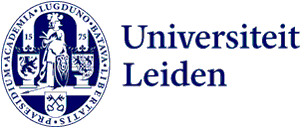
Toekenning 33 Kiem-beurzen voor nieuwe interdisciplinaire initiatieven
Maar liefst vijfenvijftig aanvragen zijn ingediend voor een Kiem seed grant, een initiatief voor het ontwikkelen van nieuwe interdisciplinaire, interfacultaire onderzoekssamenwerkingen en ontmoetingen. Maandag vond de loting plaats voor de toewijzing van 22 seed grants. Het College van Bestuur was zo onder de indruk van het aantal aanvragen dat het extra geld beschikbaar heeft gesteld en er uiteindelijk 33 projecten financiering hebben gekregen.
De afgelopen maanden zijn wetenschappers van Universiteit Leiden opgeroepen om projecten in te dienen die interdisciplinaire onderzoekssamenwerkingsverbanden stimuleren. Bij elke aanvraag moesten minimaal twee wetenschappers betrokken zijn, elk verbonden aan een andere faculteit. En omdat we jong talent de ruimte willen geven om ervaring op te doen, moest bij elke aanvraag minimaal één wetenschapper zijn betrokken die aan het begin staat van diens loopbaan. Caroline de Ruijter (SAZ) vertelde eerder over de achtergrond van de Kiem-beurzen: ‘Deze call is onderdeel van een grotere ambitie om interdisciplinair onderzoek aan de universiteit te stimuleren. Uiteindelijk komen er drie treden: Kiem, Groei en Bloei. De Kiem-beurs is bestemd als zaaigeld voor kleinere projecten over de grenzen van faculteiten heen, waar ook beginnende onderzoekers bij betrokken zijn, en bedraagt maximaal 10.000 euro per voorstel.’
Dit zijn de winnende Kiem-projecten
Omdat het aantal aanvragen het aantal beschikbare beurzen oversteeg, heeft maandag 10 juli, na een ontvankelijkheidstoets, een loting plaatsgevonden. 33 Teams kunnen van start met hun project.
Rector magnificus Hester Bijl: ‘Ik ben blij met het resultaat van de Kiem-oproep, vooral met de diversiteit aan voorstellen en de verrassende samenwerkingen. Dit is weer een stap naar meer interdisciplinair onderzoek binnen de universiteit. Ik wens de teams veel succes en plezier bij het opstarten van hun projecten en kijk uit naar de resultaten.’
De volgende Kiem-teams ontvangen een seed grant van maximaal €10.000:
| Hoofdaanvrager | Titel onderzoeksproject | Samenwerkende faculteiten |
|
Wiep Klaas Smits |
Mining the genome of bacteria cultured from the stool of healthy humans |
LUMC/FWN |
|
Marta Elena Artola Pérez de Azanza |
Screening Assay for Identifying Ligands Of RNA pseudoknots as new antibacterial and antiviral discovery platform |
FWN/LUMC |
|
Marieke Liem |
Violence as a Population Health Problem |
FGGA/FSW/LUMC |
|
Kartica van der Zon |
Oprichting kenniscentrum en ontwikkelplan m.b.t. interdisciplinaire samenwerking tussen Jeugdrecht & Pedagogische Wetenschappen |
FdR/FSW |
|
Olga Gadyatskaya |
Ethics@ULEI: Organization of international seminar on ethics in teaching and research in cyber security and artificial intelligence |
FWN/FdR/FGGA |
|
Dario Fazzi |
Beyond Risk? Understanding the Threats of the Anthropocene |
FGW/FWN/FdR/FGGA |
|
Bas Nijboer |
Hoe maken we van interdisciplinaire samenwerking een succes |
FGGA/FSW/FdA/FWN |
|
Julia Henrich |
Skills for interdisciplinarity and mental health in a complex work environment |
LUMC/FSW/FdR/ICLON |
|
Amanda Henry |
Spark: Fire and Human Evolution |
FdA/FSW/LUMC |
|
Liesbeth van Vliet |
Exploring Personal Connection in Serious Illness Communication |
FSW/LUMC |
|
Aris Politopoulos |
Crafting Heritage Experiences: Fostering collective engagement with the past through Minecraft |
FdA/FGW |
|
Jiska Aardoom |
Duurzame zorg: Hoe wordt dit ervaren door de patiënt? |
LUMC/FSW |
|
Daniela Vicherat Mattar |
BOCA Building Other forms of Communicating the Academy |
FGGA/FGW/IIAS |
|
Akrati Saxena |
The Impact of Affirmative Actions on International Academic Collaboration |
FWN/FSW |
|
Rebecca Schaefer |
Mood and music in the brain: Influences of mental health on behavioral and neural correlates of music-based motor learning |
FSW/LUMC |
|
Carsten Stahn |
Changing Approaches Towards Restitution and Return of Colonial Heritage: Tracing Experiences and Identifying Shared Decolonial Practices |
FGW/FdA |
|
Roos van Oosten |
Academic conferences in the 21st century: practicing what we preach |
FdA/FGGA/FdR |
|
John Burton Kegel |
The re-enchantment of infrastructure in Africa: Comparing Colonial and Contemporary Coastal Corridors |
IIAS/FSW/FGW |
|
Willem Jespers |
Investigating the role of the H1N1 proteome as potential triggers of the auto-immune response leading to narcolepsy type 1 |
FWN/LUMC |
|
Ksenia Fedorova |
Exploring the Gap between Embodied Cognition and Generative AI |
FGW/FWN |
|
Samira Rezaei |
Deep learning in scientific imaging: the intersection of astrophysics and medicine |
FWN/LUMC |
|
Mariska Kret |
“Bridging Animal Affective Science and Emotion Psychology using Affective Computing” – a Leiden University pre-conference workshop at the International Society for Research on Emotion (SRE) in July 2024 |
FSW/FWN |
|
Francesco Ragazzi |
ReCNTR Lab: Multimodal Research Work-in-Progress Series |
FSW/FGW/FWN |
|
Laura van der Velde |
Exploring facilitators and barriers for reducing stigma related to food aid through a camera lens: a participatory photovoice study among people experiencing food poverty |
LUMC/FSW |
|
Susana Valdez |
Health and Migration: Understanding the use of AI and machine translation in doctor-patient communication |
FGW/LUMC |
|
Sarah L. Carthy |
Hurting yourself to hurt others: Examining the role of counterfinality in antisocial punishment |
FGGA/FSW |
|
D.K. de Vries |
Elaborating organ damage and kidney transplantation outcomes |
LUMC/FWN |
|
Olga Bogolyubova |
Interdisciplinary Approaches to the Study of Safety and Danger in the Digital World |
FGGA/FWN/FdR/FSW |
|
Jorrit Smit |
Excavating Fossilized Data. A cross-cut analysis of the ties between university research and fossil industries |
FSW/FWN/FGGA |
|
Tim de Coster |
Cardiac Chaos Control study group |
LUMC/FWN |
|
Lydie Cabane |
Protecting against disasters: interdisciplinary perspectives on the notion of protection |
FGGA/FSW/FdR |
|
Rosanne Govaarts |
The developing brain in neuromuscular diseases |
LUMC/FSW |
|
Hendrik Vrijburg |
Eliciting willingness to pay for domestic and international climate change policies |
FdR/FGGA/FSW |
Over de Kiem-beurzen
Of het nu om klimaatverandering, de volksgezondheid of kunstmatige intelligentie gaat: soms floreert wetenschap vooral wanneer verschillende disciplines de handen ineenslaan. Met de nieuwe kleinschalige Kiem-beurzen kunnen Leidse onderzoekers daarom samenwerkingsprojecten verkennen of opstarten met collega’s van andere faculteiten. Via de Kiem call heeft Universiteit Leiden 33 seed grants beschikbaar gesteld ter waarde van maximaal €10.000.
